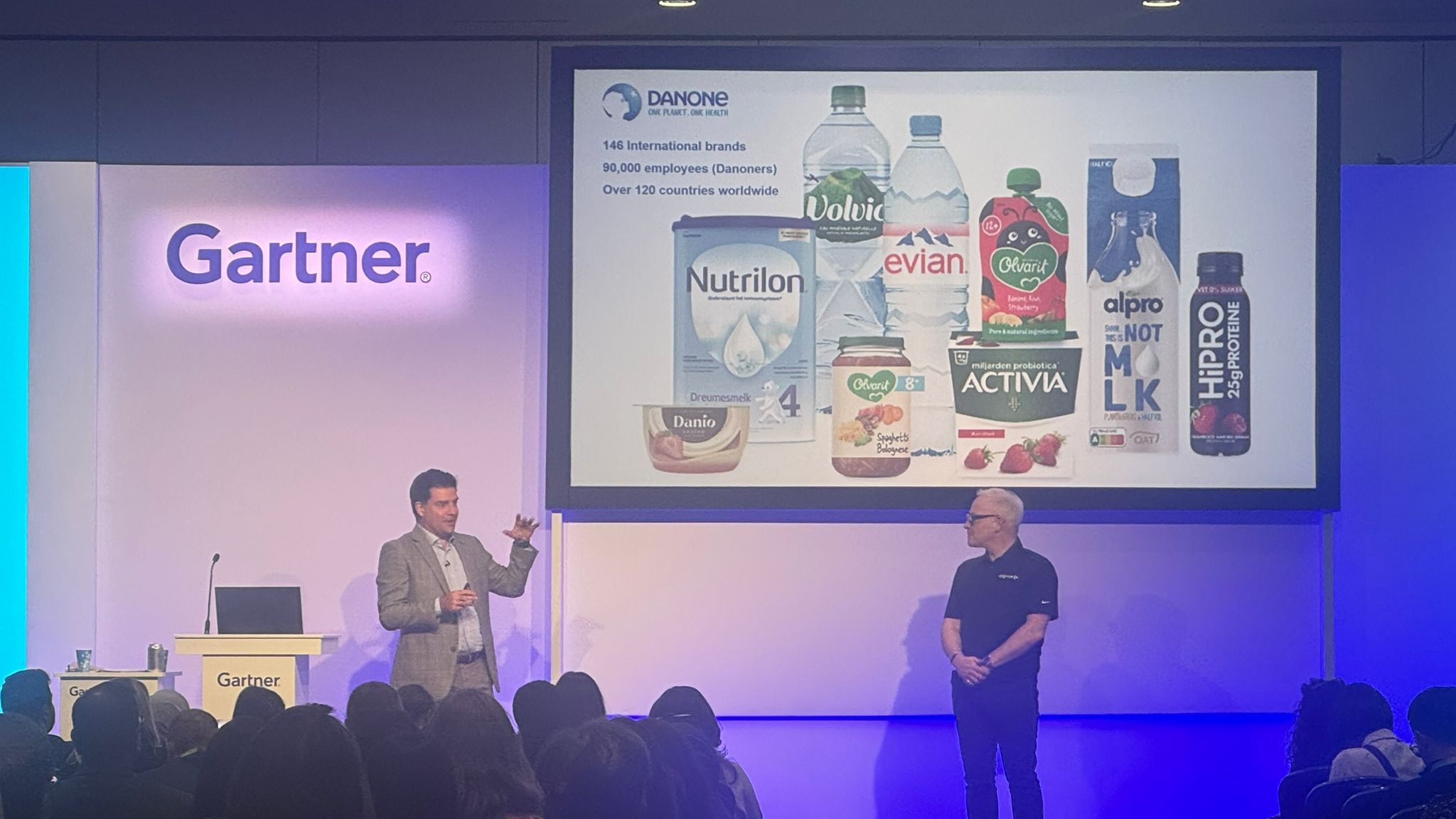CHRO relevance is on the line
Just 7% of CEOs see CHROs as AI-savvy. To stay relevant, HR leaders must lead human-AI work design.

When Vincent Favre, Organizational Development Director at Danone, told HR leaders to “hijack the business routine,” the phrase turned heads at the Gartner HR Symposium 2025. His point was simple: strategic workforce planning (SWP) only works when it’s part of the way a business actually runs.
That’s exactly what Danone did. Instead of running workforce planning as an annual HR exercise, they built it into the rhythm of business reviews. Every quarter, zone presidents present three slides: how their workforce strategy supports growth, productivity, and transformation. This shift changed outcomes. By planning around positions instead of people, Danone simplified 90,000 positions into 1,300 roles, clarified which skills mattered most, and redeployed 90% of employees affected by restructuring. As Favre put it, “We’re no longer planning around names. We’re planning around the work that gets done.”

What Danone accomplished through organizational design, Jeff Diana now describes as the next leap forward in the age of AI. In his blueprint for CHROs leading AI transformation, Diana reframes workforce planning around tasks, the smaller building blocks of work where AI can deliver measurable value.
His approach starts with analyzing the work itself. Which tasks are repetitive, data-heavy, or time-consuming but low-risk if automated? Which ones rely on judgment, creativity, or empathy? This distinction helps leaders introduce AI without triggering job-loss anxiety and keeps the focus on capability rather than headcount.
Both leaders point to the same truth: transformation becomes sustainable only when it’s built into existing routines. Favre called it “hijacking the business routine.” Diana calls it “starting to experiment now.”
In both cases, HR stops waiting for permission to innovate and instead inserts these discussions into standard operating forums: business reviews, budgeting cycles, and team performance meetings.
This integration makes HR’s role clearer and more strategic. At Danone, workforce planning now involves HR, Finance, and Operations. In Diana’s view, the next evolution adds the CIO to that table, because the design of human-AI collaboration spans both people systems and technology infrastructure.
Traditional workforce transformation has often meant downsizing.
Danone flipped that mindset by converting severance budgets into reskilling investments. Of 800 impacted roles, 90% of employees were offered new internal positions and 70% accepted. Employee engagement rose, and HR’s net promoter score doubled from four to eight out of ten.
Diana sees a similar opportunity with AI adoption. Rather than treating AI coaching or workflow automation as replacement costs, he positions them as tools that enhance existing learning systems. “So much of the real learning and value comes from in-context coaching, in the moment,” he says. Real-time guidance creates short-term ROI while accelerating long-term skill development.
The thread running through both is accountability. When workforce planning and AI transformation are embedded in the same business rhythm, HR owns the conversation about how work gets done. That’s what re-cements its place in the C-suite.

By moving from roles to tasks, HR gains sharper insight into where automation adds value and where human creativity remains essential. And just as Danone proved that planning around work can lead to 90% redeployment, the next generation of CHROs will prove that planning around tasks can lead to human-AI capability at scale.

.png)